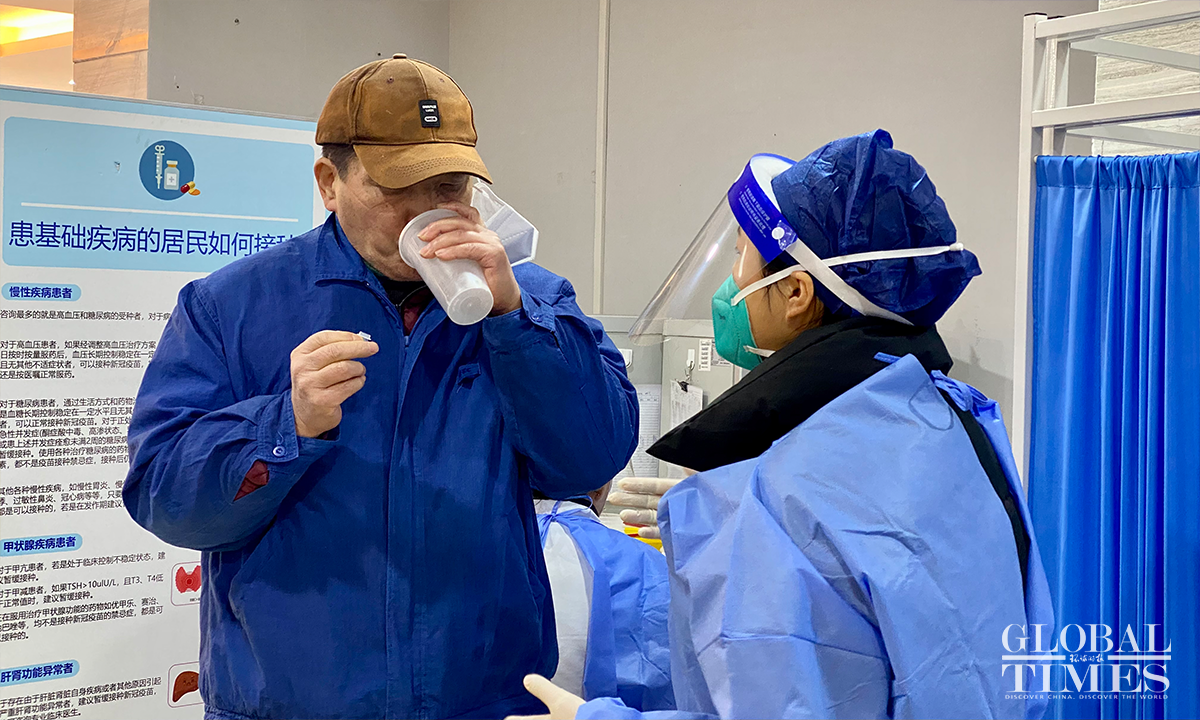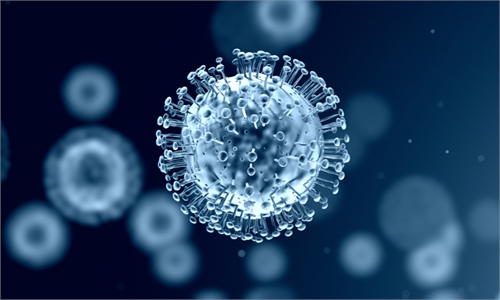
Shanghai residents receive inhalable COVID-19 vaccine. Photo: Chen Xia/GT
The new Omicron subvariant XBB, which is prevalent in Europe and the US, has been detected in Chinese cities including Shanghai and Hangzhou, drawing concern for its high infectiousness and the possibility of causing another round of infections.
Experts said that the chances of reinfection with XBB in the short term are very slim for those who have recovered from the BA.5.2 and BF.7 strains.
Shanghai officials have noted that cases of Omicron BQ.1 and XBB detected in the city were found among a few imported personnel who were put under quarantine, which hasn't caused local transmission in communities. Hangzhou, capital of East China's Zhejiang Province, announced on Tuesday that it had detected Omicron subvariants XBB, BQ.1 and other strains among imported personnel who were under closed-loop management.
Easing concerns caused by the new strains, Hangzhou health authorities released tips to let the public know more about the new strains, and they noted that "foreign data show that XBB's and BQ.1's pathogenicity are not significantly different from previous strains, and the rate of severe illness and mortality has not increased in countries and regions where XBB and BQ.1 are prevalent."
BQ.1 and XBB are widely prevalent in Europe and the US, and the rise is significant, Lu Hongzhou, head of the Third People's Hospital of Shenzhen, told the Global Times on Tuesday.
BQ.1 was derived from the BA.5 strains of Omicron, and its sub-variant BQ.1.1 has become a dominant strain globally; while XBB has shown "a strong immune escape capacity," in just two weeks after its emergence, and it has become the main strain prevalent in Singapore, Lu said.
The high infectiousness also sparked public concerns over the possible rising reinfection rate.
Herd immunity is relatively weak against infection with the new mutant strains - BQ. 1 and XBB, which escape the immune barrier established by previous vaccination and natural infections, according to Lu.
"Although people will not get reinfected within three to four months, it is undeniable that the new strain possibly shortens the 'safety window' for reinfection," Lu noted. "In Europe and the US, some people with weak immunity may be infected multiple times a year."
However, the immune barrier established by vaccination still has a good protective effect on the prevention of severe illness and death, Lu noted. "There is no evidence indicating that the virulence of the BQ. 1 and XBB strains is significantly different from other Omicron variants. For the general public, especially for high-risk populations such as the elderly, vaccination is the best option," Lu said.
For those who have been infected with BA.5.2 or BF.7 and other Omicron variants, the chances of reinfection with XBB within a short period are very slim, Wang Xinyu, deputy director of the infectious disease department in Huashan Hospital affiliated with Fudan University, told the Global Times on Tuesday.
Wang acknowledged public concern over XBB reportedly attacking the intestinal tract and causing "brain fog".
Some people infected with the new mutant strains do have gastrointestinal symptoms, including vomiting and diarrhea. Diarrhea is not uncommon among symptoms other than the respiratory tract. According to foreign reports, XBB may also cause diarrhea, but nothing more serious, and XBB still mainly invades the respiratory tract, so to say "XBB mainly attacks the intestinal tract" is not true, Wang said.
Media reports said that in some cities including Southwest China's Chongqing, anti-diarrheal drugs were sold out in several pharmacies overnight.
According to Wang, it is unnecessary for the public to hoard antidiarrheal and antibacterial drugs, as diarrhea caused by COVID-19 is usually mild, and generally will resolve on its own in a short period without drug treatment.

